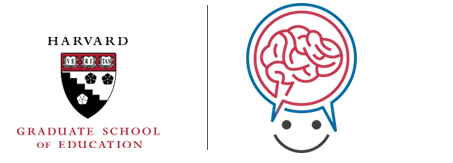Research
Current Research
Measuring Bilingualism in Kindergarten Registration
Project Team: Gladys Aguilar, Analiese Reigstad
Project Description: With an increasingly linguistically-diverse population in U.S. schools, it is important to understand children’s language background and school readiness. During kindergarten registration, across districts and states, educators often focus on English proficiency when accounting for incoming students’ diverse language experiences. Despite the diversity in home language surveys adopted by different districts and states, parental indication of whether English is spoken at home is the primary information used to establish children’s language background while other home-related language and literacy information is rarely taken into account. Dr. Luk and her colleagues will test the feasibility of a survey on home language and literacy background during kindergarten registration. To increase ecological validity, the questions are designed to capture gradient as opposed to categorical responses. Educators’ feedback and yearlong kindergarten assessments will be combined to determine the value of providing additional information on home language and literacy environments before kindergarten begins. Findings will contribute to discovering what home language information should be collected, how this information can be used to enrich children’s learning, and what the link is between diverse language experience and learning in kindergarten.
Funding agency: Spencer Foundation
Bilingualism and reading difficulties
Project Team: Laura Mesite, Sibylla Leon-Guerreo, Veronica Whitford, Valerie Woxholdt, Carolynn Ianello
Project Description: Being bilingual (or multilingual) confers cognitive advantages beyond those used for purely communicative purposes. Research has shown that bilinguals outperform their monolingual peers on tasks assessing executive functions (EF), a set of skills critical for the goal-oriented control of attention and for using other cognitive resources efficiently. Most studies reporting a bilingual advantage involve normal populations across the lifespan and this advantage is most apparent in non-linguistic tasks. However, it is unclear whether the cognitive advantages associated with bilingualism also apply to atypical populations, particularly those experiencing reading difficulties. This line of research examines how bilingualism as a life experience interacts with reading difficulties at different developmental stages using behavioral assessments and neuroimaging techniques.
Perceived Social Values of Bilingualism
Project Team: Sarah Surrain
Project Description: In the United States there is currently a paradoxical view of the value of young children’s bilingual experiences. On the one hand, emergent bilinguals from minority backgrounds are often seen as being at a disadvantage due to their dual language experiences. On the other hand, many parents of native English speaking children see bilingual experiences as enriching and seek them out for their children. This project aims to understand how parents from diverse language backgrounds perceive the social value of bilingualism and how these beliefs are related to language use and education decisions for their children. We are in the process of developing and testing a scale to measure Perceptions of Bilingualism (POB) that can be used with populations from different language backgrounds across the United States. In addition to surveying a nationally representative sample of adults, we are partnering with school districts interested in understanding parents’ attitudes towards learning and maintaining multiple languages.
